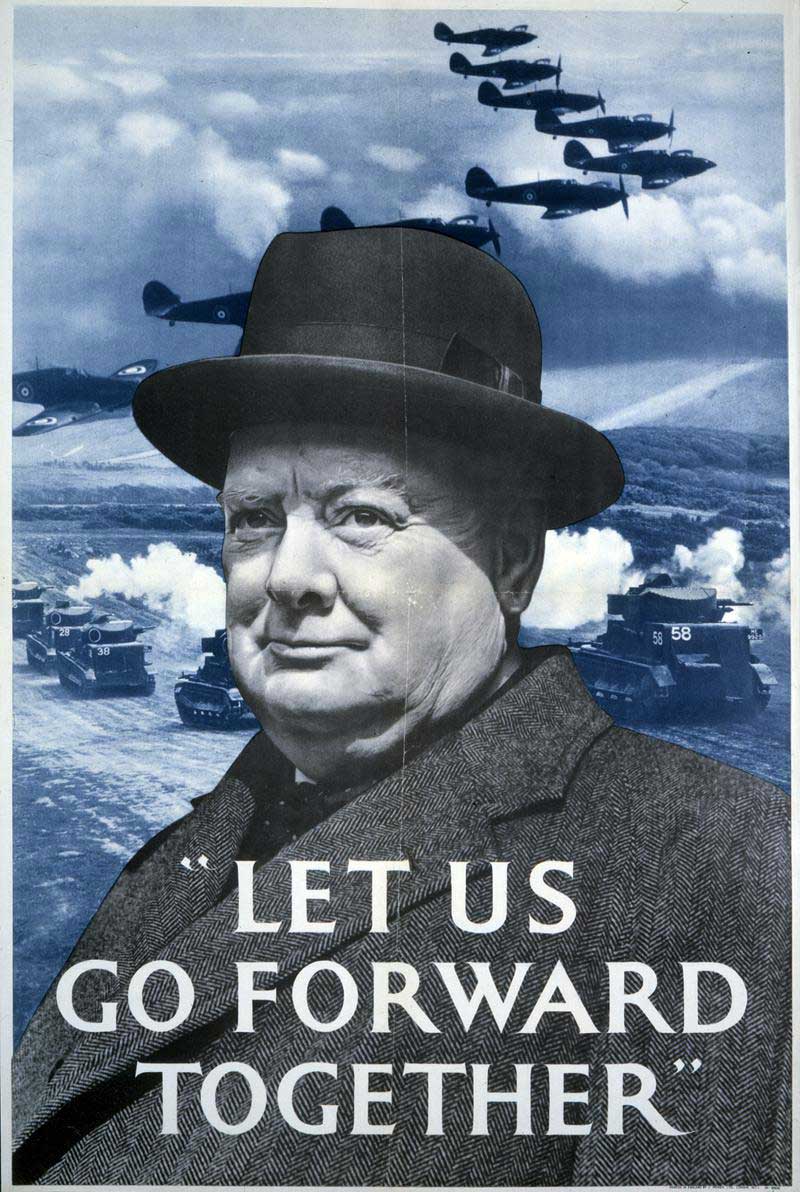
Ministry of Information poster, Second World War. ‘Let us go forward together’, Winston Churchill (INF 13/213 (49))
Last week, colleagues from the Government Digital Service (GDS) came to visit us at The National Archives. As professional folk in the creative, digital comms world it seemed the perfect opportunity to order up some files we have here that may shed some light onto government communications work of the past.
In the main I ordered up documents from the INF series. These are the records from the Central Office of Information (COI). They also include records from other departments and ministries that had previously provided government publicity and public information. The Ministry of Information, from the time of the Second World War, is probably the most well-known of these departments.
We saw some stunning artwork from the INF 3 series, but it was actually a file from the Prime Minister’s office which really caught my eye – PREM 11/1734. In this file, from the 1950s, Winston Churchill is re-issuing a plea he made in 1940 for the ‘need for brevity in communications’.
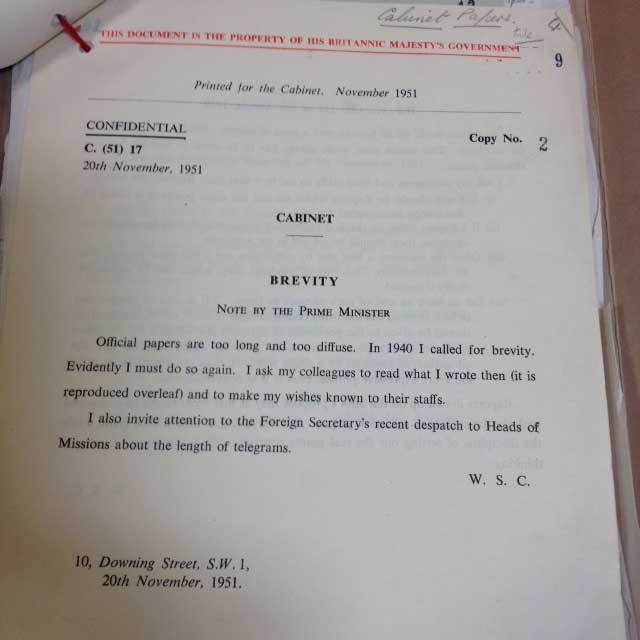
Note from Winston Churchill, calling for brevity in official papers (PREM 11/1374)
The file focuses on some of the key elements of good communication that would resonate with the thinking of any modern communicator. It also shows how the message was cascaded through the civil service.
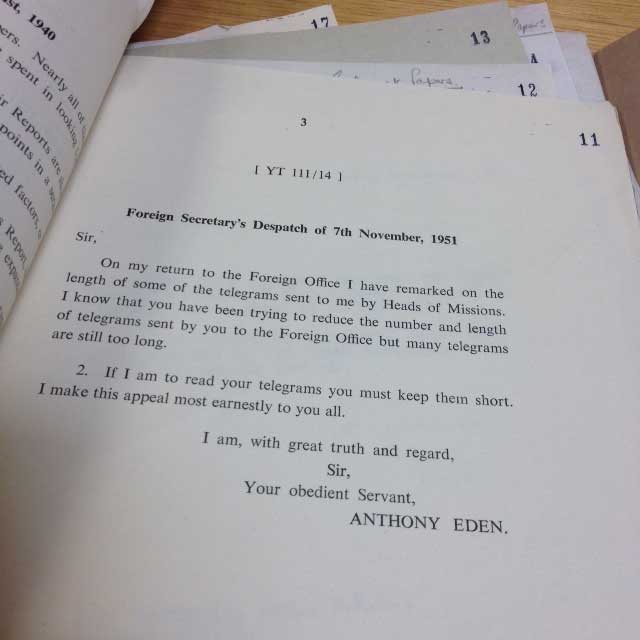
Anthony Eden, Foreign Secretary, calls for shorter telegrams (PREM 11/1374)
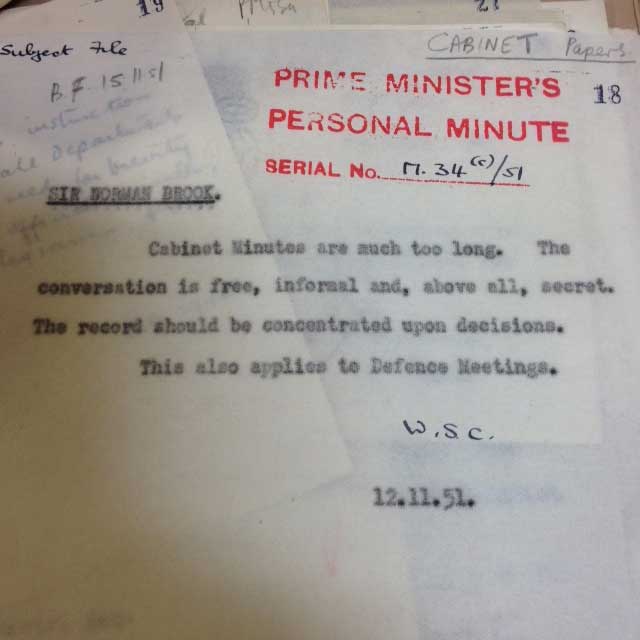
Personal minute from Winston Churchill stating that Cabinet Minutes should focus on decisions (PREM 11/1374)
As well as keeping things brief, the need to avoid jargon and ‘woolly phrases’ is also highlighted. Reports, minutes, telegrams and letters should all be kept to the point in order to save time.
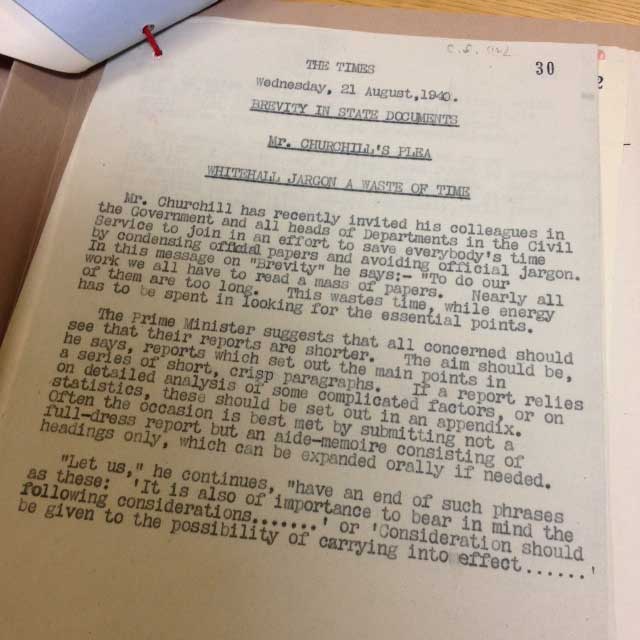
‘Mr Churchill’s plea’ (PREM 11/1374)
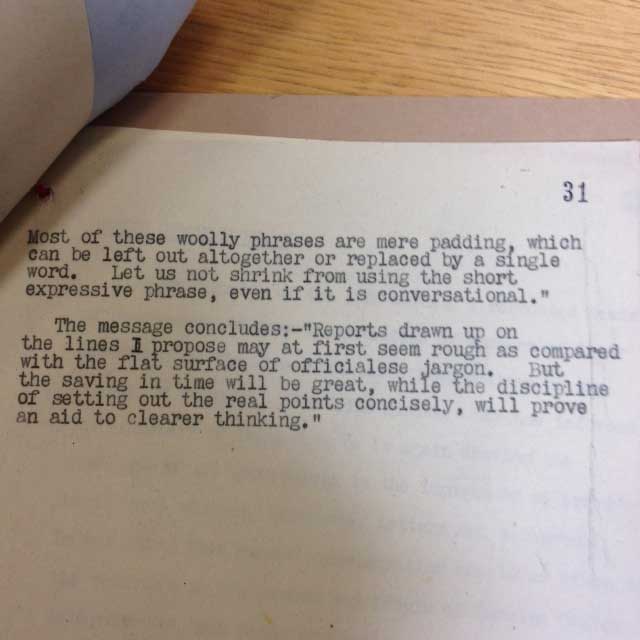
‘Mr Churchill’s plea’ (PREM 11/1374)
I wonder how much other good advice there is within our files, especially for government communicators. Has anyone else found any hidden gems like this one?
From all the pages, my two favourite ones are as follows:
Firstly, this short note, in which the phrase ‘short-winded-ness’ is used:
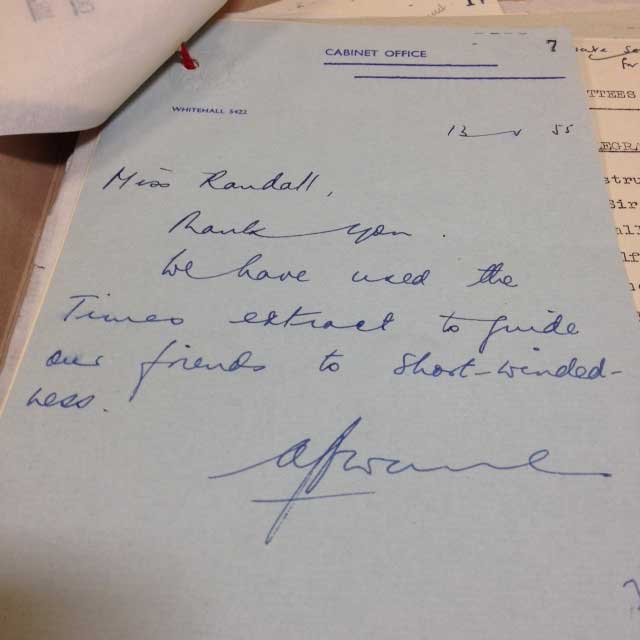
Short note in response to Churchill’s plea (PREM 11/1374)
And secondly, this letter to the Secretary of States, signed off ‘Forgive this cry of pain’ by Winston Churchill. Anyone who’s had to wade through long, jargon filled reports will know the exact pain he means!
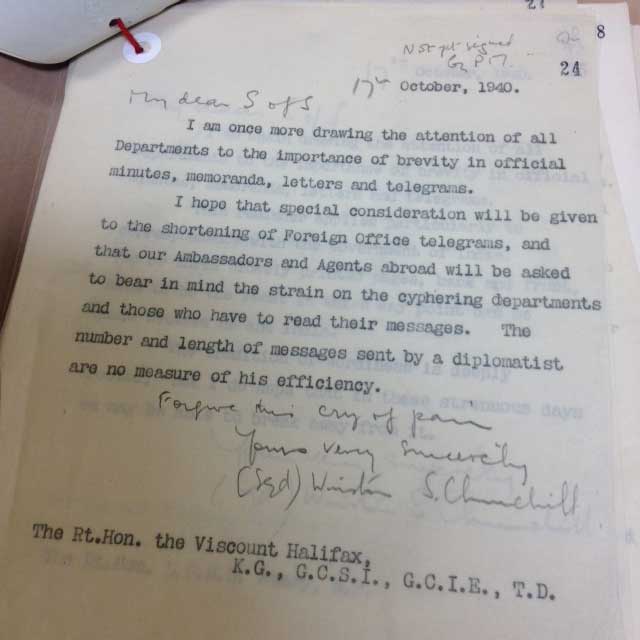
Note to Secretary of State from Churchill (PREM 11/1374)
Churchill was not the only one who raised this issue, in Mrs Thatcher’s time the need for brevity in Cabinet documents (PREM 19/961) was again raised. It should have been obvious to authors of the papers that if the documents were going into the Ministerial Red Boxes that it shouldn’t be a huge document, Sir Humphrey might disagree. Given the length of telegrams after Churchill’s time shows what he was talking about, three or four pages long!. Of course it would have been the responsibility of the Permanent Secretary to the Treasury (in his role as Head of the Home Civil Service) and the Cabinet Secretary to have the policy implemented.
I’m afraid the ‘greater world’ failed to learn from Winston Churchill’s pleas! I joined my local Police Force in the mid-70’s and learned suitable phrases to use in the preparation of my reports. Thinking back, some of these could easily have been shortened but it was now like a tradition to write in this way.
Even more recently, in a different post but still within the police service, my department head declared that all reports must be made shorter and more precise because people were too busy with more important matters to read these. This might sound a bit harsh but once an appropriate format was decided, reports dropped from, typically, 70 pages to around 36 pages. Success!
[…] Read more on Winston Churchill’s call for brevity in this blog from the National Archives. […]
[…] Read more on Winston Churchill’s call for brevity in this blog from the National Archives. […]
Oh if only we could get Defra to follow these guidlines!!!
I realise that this blog is about two and a half years old so this may not get a response.
The blog text refers to PREM 11/1734 but all the references under photos reference PREM 11/1374.
The third photo shows a Prime Minister’s Personal Minute Serial No. 17.34 (c) /51. I wondered if this was related to the PREM reference?
Also, does the original war office memo of 09 August 1940 exist somewhere online? I’ve been trying to find the original without any luck. A number of sites reference it but have minor differences in punctuation and wording to the document shown in the 4th and 5th photograph of this blog.
Found it, I clearly wasn’t using the search engine right doh! http://discovery.nationalarchives.gov.uk/details/r/C9135954
Thank you, Joe, for the link. I’ve downloaded it. It’s brilliant. I don’t know how I wasn’t aware of its existence before. It’s going to go straight into all the talks I give on clear writing.
Reminds me of the preacher DL Moody who was all for short prayers. In one prayer time when one of the congregation had been praying for a considerable time, Moody got up and said’ While our friend is finishing praying we’ll sing a hymn’. He, like Churchill believed in getting to the point and finishing. Peter only prayed 3 words ‘ Lord save me’. The prayer was answered.
Some decades ago my wife and I were in church and endured a young man praying publicly at length. Eventually he said: “… and finally, dear father…”
We looked at those around us and could see and feel that the atmosphere had lightened perceptibly.